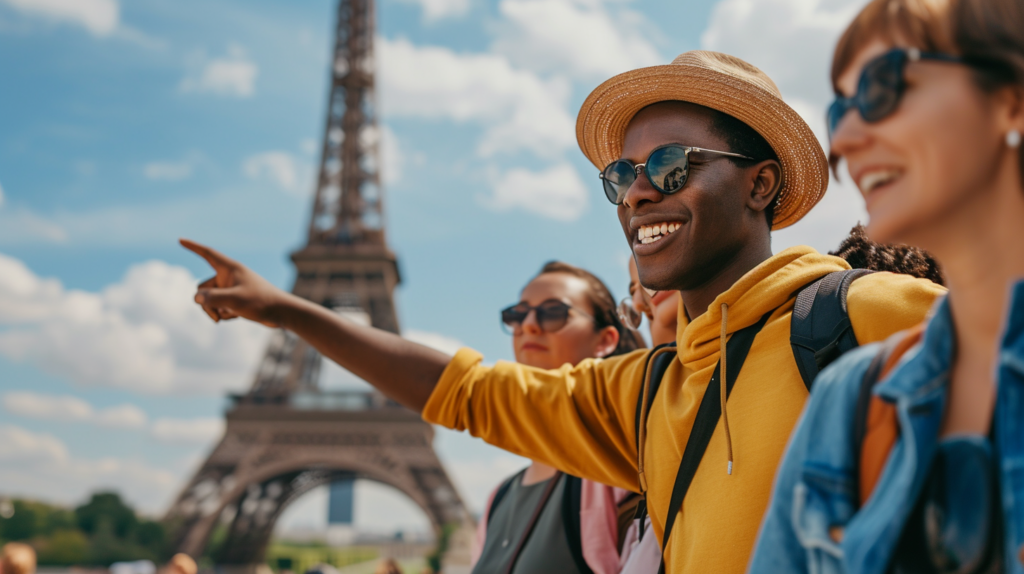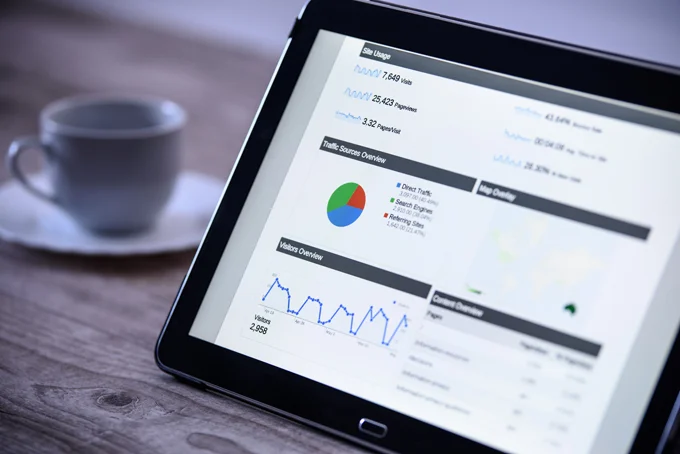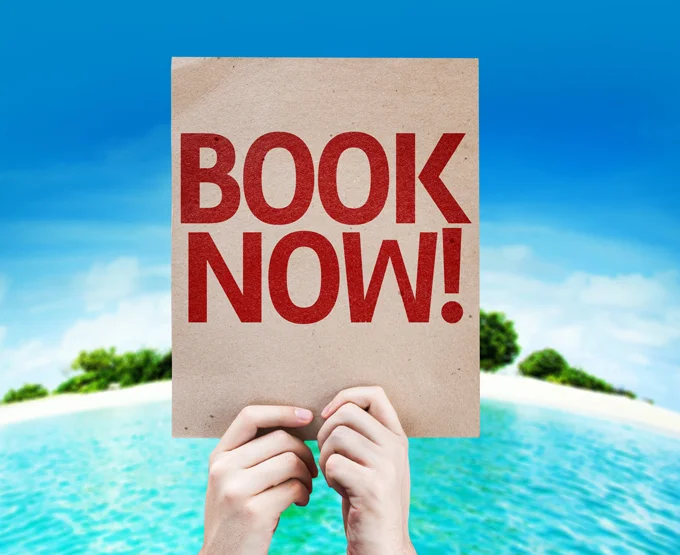SEO For Tour Operators: 7 Simple Tips To Generate More Bookings

As a tour operator, it is critical to have a website optimized for search engines. It will help you generate more traffic and bookings. It can also build a tourism niche for your business. Here is an in-depth discussion on SEO for tour operators and seven tips for optimizing your website using SEO efforts. We will also look at how to use Google Analytics to assess your website’s performance in this blog post. Finally, we will explore some pitfalls to avoid in SEO practices for tour companies.
Why Is SEO Important For The Travel Industry?
SEO helps improve the visibility of travel and tourism websites. Many factors assess a website’s visibility, including:
- The number of backlinks
- The quality of backlinks
- Domain authority
- Relevancy

How Do You Generate Organic Traffic For Your Website As A Tour Operator?
Is all traffic to your website beneficial? The answer is no. There are various categories for website traffic, including:
- Organic traffic is the most beneficial traffic for your website. It is defined as users finding your website through a search engine like Google, Bing, or Yahoo.
- Paid traffic is generated when you pay for ads that appear on search engine results pages (SERPs).
- Referral traffic is when users click on links from other websites that lead to your website.
- Social media traffic is when users find your website through social media platforms like Facebook, Twitter, or Instagram.
The main difference between organic and paid traffic is that organic traffic is free, while paid traffic costs money.
Generating organic traffic should be the goal of any website, as it is the most valuable form of traffic. It is essential because:
- It is targeted: The visitor has actively sought out your website.
- It is high quality: The visitor is more likely to convert into a customer.
- It is long-term: Once you rank for a keyword, it is difficult for your competitors to outrank you.
There are many ways to generate organic traffic, including:
- On-page SEO is optimizing your website’s content and structure to rank higher in search engine results.
- Off-page SEO is the process of building backlinks to your website to improve your visibility and ranking.
- Content marketing is creating and promoting valuable content to attract and engage your target audience.
- Social media marketing uses social media platforms to promote your brand and website.
The most common and effective method is search engine optimization. It is because:
- It is the most targeted form of marketing: The user has actively sought out your website through a search engine.
- It is the most cost-effective form of marketing: Once you rank for a keyword, it is tough for your competitors to outrank you.
- It has the best ROI: SEO has been shown to have the best ROI of any form of marketing.
SEO is not a one-time effort. It is an ongoing process. You must continuously work on your website to maintain and improve your ranking through search engine optimization. It may, however, become strenuous and monotonous. In that case, you can entrust that role to a quality website builder like Gondola with a vast experience in commerce technology for tour and activity companies.

What Increases Your Search Rankings
It would help if you understood how internet searches work to increase your search rankings. When someone searches for a term on the internet:
- The search engine looks through its index of websites to find the ones that are most relevant to the search term.
- The search engine then ranks these websites in order of relevance.
- The searcher is presented with a list of websites, starting with the most relevant.
It means that if you want to increase your search rankings, you’ll have to deliberately:
- Make your website more relevant to the search engine.
- Make your website more popular than other websites.
- Do both of these things better than your competition.

The Role Of Google Analytics
For Google search results for tour operators, the tech firm employs a combination of human and algorithmic raters who assess websites on over 200 factors to determine which sites should rank highest. Its role in search results is to give business owners like you insights into how these ranking factors affect your website’s visibility and traffic. Analytics is a free tool that shows you:
- How many people visit your website?
- Where do they come from?
- What pages do they visit?
- How long do they stay on your website?
- What devices do they use to access your website?
- What browser do they use to access your website?
Nevertheless, the most important thing it tells you is how people find your website in the first place:
- Through which channels do they discover your website?
- Which keywords do they use to find your website?
- Which websites link to your website?
This information is invaluable in understanding how to increase your visibility and traffic. It allows you to see what’s working and what’s not.

How To Use Google Analytics For Tour And Travel Websites
First, you need to set it up for your website. It can be done by following these simple steps:
- Go to Google Analytics and create an account.
- Enter your website’s URL and select the industry category that best describes your business.
- Follow the instructions to add the tracking code to your website. Once you’ve installed the tracking code, you can start collecting data about your website’s traffic and performance.
- To see how people find your website, go to the Acquisition tab and click on All Traffic. Here you’ll see a breakdown of the different channels through which people discover your website.
- To see which keywords people use to find your website, go to the Acquisition tab and click on Keywords. Here you’ll see a list of keywords driving traffic to your website.
- To see which websites are linking to your website, go to the Acquisition tab and click on Referrals. Here you’ll see a list of websites that have linked to your website.
Keyword Research For Tour Operators
Your keyword strategy will be different depending on the services offered and the targeted tourism niche. However, there are some general tips that you can follow to do your keyword research to shift search results in your favor:
- Think like your customer. What search terms would they use if they were looking for a tour or activity like the one you’re offering?
- Use Google’s Keyword Planner tool to find relevant target keywords.
- Make a list of all the relevant keywords that you can think of.
- Prioritize your list of keywords by difficulty and search volume. The difficulty measures how hard it will be to rank for a particular keyword. The search volume measures how many people are searching for that keyword.
- Start with the more straightforward, high-volume keywords and work your way down to the more complex, low-volume keywords.
For tour operators, target keywords specifically need to focus on:
- The name of the tour
- The type of tour
- The location of the tour
- The date or time frame of the tour
- The price of the tour
By targeting relevant keywords, you will be more likely to rank in Google search results and generate more bookings.

How To Place Internal Links To Increase Traffic
Internal links on your web page are links that point to other pages on your website. They are an essential part of SEO because they help search engines understand the structure of your website and the relationships between different pages. These links also help increase traffic to your website by giving people more opportunities to discover new content.
Here are some tips for how to place internal links for tour and tourism websites:
- Use keyword-rich anchor text. It is the text that people will click on to be taken to another page.
- Link to relevant pages. Don’t just link for the sake of linking. Ensure that the page you’re linking to is relevant to the context of the page you’re connecting.
- Use natural language. It should sound natural when you’re reading the text aloud. For example, “For more information about tour operators in New York, click here.”
- Don’t overdo it. Too many links on a page can be off-putting for readers and make your website look spammy to search engines. A good rule of thumb is to limit the number of links on a page to around 20.
Internal linking is a simple and effective way to improve your website’s SEO.

Pitfalls To Avoid In Travel SEO Practices For Tour Companies
When using SEO tools, try avoiding these common pitfalls:
- Stuffing keywords to rank for all of your travel SEO. It is considered spammy and can hurt your ranking.
- Paid links. These are links that you pay for to increase your website’s ranking. Google considers this practice manipulative and will penalize your website if they find out you’re doing it.
- Link farms. These are websites that exist solely to sell links. They offer no value to the user and can hurt your ranking.
- Doorway pages. These pages are created for the sole purpose of ranking on Google. They are often stuffed with keywords and don’t provide any real value to the user.
Do Different Search Engines Display Different Search Results?
Tech companies that run most search engines used by the public for browsing aim to show similar, if not the same, results for a given query. However, this is not always the case. Let’s say you run search terms on Google and then again on DuckDuckGo for the same thing. The top result might be the same website, but there could be different websites in second place. It is because each search engine has a different algorithm for ranking websites and displaying search results.
While the algorithms used by each search engine are kept secret, we do know that they take into account many factors when deciding which websites to rank first in the search results. These factors can include things like:
- The number and quality of inbound links pointing to the website
- The content of the website
- The age of the website
- Whether the website is mobile friendly
Different search engines will weigh these factors differently, which is why you might see different results when you run search terms on various search engines.
Local SEO For Customer Journey Searches
If you’re a tour operator, then local SEO should be a crucial part of your marketing strategy. Local SEO is the process of optimizing your website for searches that are related to your location. For example, if you’re a tour operator in New York, you would want to optimize your website for searches like “tour operators in New York” or “New York tours.”
Local SEO for tour operators is vital because it allows you to be found by people searching for tour operators in your area.
There are a few things you can do to optimize your website for local SEO:
- Make sure your website is listed on Google My Business. It is a free listing that allows you to provide information about your business, such as your hours of operation and your address.
- Include location-specific keywords on your website. As mentioned before, this includes the name of your city or region.
- Get listed on directories and review sites. It helps to increase your website’s visibility and can also help to build up your reputation.
By following these tips, you can improve your local SEO and get more bookings from people searching for tour operators in your area.

7 Simple Tips To Generate More Bookings
If you want to increase your bookings for customer journey for your website specifically, here are seven tips:
- Use booking buttons or widgets on your website. It makes it easy for potential customers to book a tour directly from your website.
- Offer discounts and special offers. It can be a great way to increase bookings, especially starting.
- Create a solid call to action. The text on your website tells customers what you want them to do. For example, you might say, “Book now!” or “Learn more about our tours.”
- Include customer testimonials on your website. It is a great way to build trust and show potential customers that others have had a positive experience with your company.
- Make sure your website is mobile-friendly. More and more people are using their phones to browse the internet, so your website must be designed for mobile devices.
- Use social media to promote your tours. It is a great way to reach customers who might not find you otherwise.
- Make sure your website is easy to use. Potential customers should be able to find what they’re looking for quickly and easily. If your website is hard to navigate, people will likely give up and look elsewhere.

About Gondola
For tour and activity businesses, Gondola is the only website solution with experience commerce technology, growing revenue from direct bookings. We help tour and activity providers increase the number of direct online bookings made through their most valuable digital resource: their website.
Contact us today if you’re looking for a partner to help you increase your online bookings in the travel and tourism industry. If you have any questions not addressed in this blog post, we’ll be happy to answer any of your questions and help move your tour company forward.
